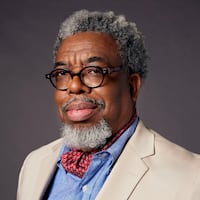Big Brother is coming to Atlanta. Or is it a watchful eye that will make walking city streets safer?
On Monday, the Atlanta City Council approved a measure to network and monitor thousands of public and privately owned security cameras throughout Atlanta.
The cameras and images will be part of a new multi-million dollar video integration center, designed to compile and analyze footage from the network..
To start, images from as many as 500 cameras -- some city-owned and some private -- are expected to flow into the center, providing images from Piedmont Park to Underground Atlanta. The center will use software that can identify "suspicious" behavior and allow monitors to quickly deploy public safety personnel. The software is also capable of pinpointing where gunshots originate from.
The center is being built by a $2.6 million federal grant from the Department of Homeland Security and the Justice Department. The Atlanta Police Foundation – which funds the camera network operated by the Midtown Blue, a private security agency -- is also raising money to operate the center. The city has not determined yet how much it will cost to operate the center annually, but the Council is committed to establishing virtually blanket video monitoring of the city.
“I am in full support of increased eyes on the streets,” said Ivory Lee Young, chairman of the council’s public safety committee. “[Atlanta Police] Chief Turner expressed early on that this was a way to supplement enforcement with technology. This is a way to operate smarter.”
. Others are conflicted, worried about the camera network's impact on privacy.
"I have very mixed feelings about it," said Marsha Guobadia, a Sandy Springs resident. " ...I want my family to feel safe and protected. The question is how far is too far in protecting citizens, but possibly infringing on those citizens' privacy?"
The American Civil Liberties Union opposes the cameras.
“When you start centralizing video footage from one place, run by the government, you are opening up the possibility that everybody will be tracked and monitored, which is inconsistent with our oldest traditions of privacy,” asked Jay Stanley, a senior policy analyst for the national ACLU.
City COO Peter Aman said the city is aware of privacy concerns and will remain sensitive to them.
"But we do believe that appropriate video monitoring of public spaces can reduce crime and avoid privacy issues," Aman said.
In cities where cameras have been employed to help fight crime, there have been measures of success. San Francisco installed cameras in 2005 and last week the city’s police chief asked for more, after an art thief was arrested after being captured on video. .
But Stanley argues that there is no data that conclusively proves that cameras reduce crime in a city.
“It may move crime somewhere else,” Stanley said. “These centers are expensive and people would be better off having police officers on the streets, instead of these high-tech gizmos, which people assume is a silver bullet. ”
Aman said video deters crime and helps with investigations..
"If you go to COBRA, you will hear ‘video' in every case," said Aman, about the APD's weekly crime analysis meeting. "Whether low or highprofile, video evidence is critical part in putting people in jail. And putting people in jail reduces the crime rate."
About the Author
The Latest
Featured


